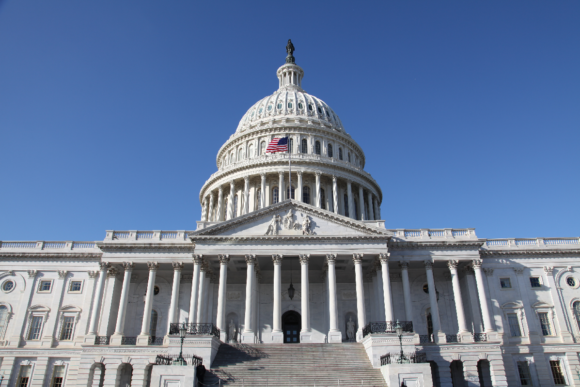Congress is on the cusp of significantly expanding health care and education benefits for veterans and active Guard and reserve members.
The Senate and House have each passed bills that would help post-9/11 veterans exposed to toxic burn pits receive critical health care services. The House also passed a measure that extends GI Bill education assistance to previously ineligible National Guardsmen and reservists.
These legislative efforts would change the lives of millions of veterans. They also wouldn’t come at the expense of veteran homebuyers.
For years, Congress has used the Department of Veterans Affairs loan program’s guarantee fee to pay for other veteran benefits. Raising this fee makes home buying costlier, which is the last thing veterans need in the current housing climate.
Veteran homeowners aren’t spared entirely. The Guard and reserve education bill would be paid for with a temporary increase to the guarantee fee on VA refinance loans.
Ideally, Congress wouldn’t fund veteran benefits on the backs of other veterans. But at least these bills won’t make a bleak home-buying market even tougher.
Burn Pit Bills
The Senate and House bills would expand health care coverage for as many as 3.5 million veterans exposed to toxins in Iraq and Afghanistan.
The Senate unanimously passed its Health Care for Burn Pit Veterans Act in mid-February. The House’s version of the bill passed last week. The measures would make it easier for veterans to access VA medical services and expand eligibility for guaranteed care.
The two chambers have to reconcile the bills before a final version can head to the president’s desk.
“Unanimous passage of our Health Care for Burn Pit Veterans Acts sends a clear message to toxic-exposed veterans across the country that we are committed to moving the needle on addressing toxic exposures in a comprehensive and bipartisan way,” said Senate Veterans Affairs’ chairman Jon Tester (D-MT). “Our bill is a necessary step in connecting an entire generation of veterans with the VA care they need and cannot wait for any longer. This kind of swift action is a testament to what can be accomplished when we all row in the same direction.”
The House’s version of the bill is expected to cost about $300 billion over 10 years.
Education Bill
The House passed the Guard and Reserve GI Bill Parity Act in mid-January with bipartisan support.
This legislation widens the net for GI Bill benefits and helps put Guard and Reserve members on more equal footing with active-duty military.
Under the bill, National Guardsmen and reservists would earn credit toward education benefits for any day spent in uniform receiving military pay. This would include training, inactive training, active military service and general duty when basic pay is warranted.
Rep. Mike Levin (D-CA) introduced the bill and acknowledged the increasingly vital role of Guard and reserve members.
“National Guard and reserve members are increasingly serving on the front lines of our nation’s greatest challenges,” Levin said. “It’s shameful that we have asked Guard and reserve members to respond to these crises without providing them with the same GI Bill benefits as the active-duty service members who they often serve with. It’s time for us to step up and give them the benefits they have earned for protecting the American people.”
To help cover the estimated $1.9 billion price tag, the House would temporarily raise the guarantee fee on VA Interest Rate Reduction Refinance Loans (IRRRLs). The fee would rise from 0.50% to 0.85% once the bill is signed and continue through 2030.
On a typical $200,000 loan, the increase would force veteran homeowners to pay at their loan closing or finance an additional $700. Veterans receiving service-connected disability compensation are exempt from these fees.
A range of groups, from the American Legion to the National Association of Realtors and others, have called on Congress to stop using VA home loan fees to cover the cost of expanding veteran benefits that aren’t tied to housing.
These fee hikes “increase costs at a time when veterans are looking to lower their monthly mortgage payments in a responsible way,” Leslie Rouda Smith, president of the National Association of Realtors, told Congress in December.
“These savings are particularly important for those veterans who have suffered temporary job losses or reductions in income,” Rouda Smith said. “Any fees charged in a VA transaction by VA should be used to explicitly to support the VA Home Loan Guaranty program.”




About the comments on this site:
These responses are not provided or commissioned by the bank advertiser. Responses have not been reviewed, approved or otherwise endorsed by the bank advertiser. It is not the bank advertiser’s responsibility to ensure all posts and/or questions are answered.